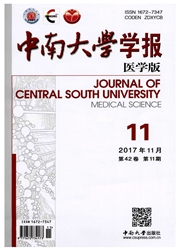

 中文摘要:
中文摘要:
内皮祖细胞(endothelia lprogenitor cells,EPCs)是存在于骨髓、脐血和外周血的一种具有高增殖潜能的前体细胞,在一定条件下可诱导分化为成熟的血管内皮细胞。研究表明,EPCs可促进血管内皮修复和新生血管形成,其功能受损与动脉粥样硬化(atherosclerosis,AS)的发生和发展密切相关。因此,EPCs功能变化可作为心血管疾病的预测因子。大量研究证明,多种药物可通过调节EPCs功能进而起到抗AS的作用。本文综述EPCs在AS的作用及药物对EPCs功能的影响,探讨EPCs作为AS治疗手段和靶点的可行性及存在的问题。
 英文摘要:
英文摘要:
Endothelial progenitor cells (EPCs) are a kind of progenitor cells with high potential of proliferation, which exist in the bone marrow, umbilical cord blood, and peripheral blood. Under certain conditions, EPCs can differentiate into mature vascular endothelial cells. Many studies have shown that EPCs could delay the onset and development of atherosclerosis by promoting the repair of the endothelium and neovascularization. EPCs have also been considered to be a biological marker for cardiovascular diseases. Recent investigations demonstrate that EPCs can mediate the effect of some anti-atherosclerosis drugs. This paper reviews the role of EPCs in atherosclerosis and the influence of drugs on EPC function. The feasibility and the problem of using EPCs as a treatment strategy are also discussed.
 同期刊论文项目
同期刊论文项目
 同项目期刊论文
同项目期刊论文
 期刊信息
期刊信息
